TU9 universities in Germany and some of its latest innovations
Estimated reading time: 9 minutes
Updated on: July 2025

Key Takeaways
- TU9 universities are Germany’s top nine technical institutions known for world-class engineering, STEM education, and research excellence.
- With the exception of TU München, they offer tuition-free education for most undergraduate programmes and a variety of English-taught degrees.
- TU9 institutions are globally ranked and recognised for their strong industry partnerships, cutting-edge facilities, and research-driven innovation.
- Malaysian students can apply via A Level, STPM, or with SPM/IGCSE followed by a pre-university pathway like German Educare’s A Level German Pathway.
- Most TU9 undergraduate courses are taught in German; students must meet B2/C1 German language requirements, while some master’s programmes are offered in English.
- Graduates benefit from strong career outcomes, access to Germany’s post-study work visa, and potential pathways to permanent residency.
- German Educare offers complete preparation, application, and relocation support for students aiming for TU9 success.
Tradition, excellence, and innovation are the hallmarks of TU9 Universities.
Source: tu9-universities.de/about-tu9/
What is TU9?
TU9 German Universities of Technology e.V. is a collaboration of nine leading Technical Universities in Germany. TU9 Universities play huge roles in Germany’s technological progression and they pay high attention particularly in the quality of university education associated with their core subjects, engineering sciences. international relations and diverse cooperation with the industry is strongly encouraged by the TU9 universities. Research and teaching at the TU9 are based on independence, diverse in opinion and equality. Students at the TU9 are able to experience learning in an open-minded environment where sharing and transferring of knowledge and critical exchange are fostered with full respect and no discrimination.
Why Choose TU9 Universities as an International Student?
If you’re planning to pursue engineering or STEM programmes in Germany, the TU9 universities are among the best options available. These institutions represent Germany’s top technical universities and are globally respected for their academic excellence, cutting-edge research, and strong ties to industry.
For international students—especially from Malaysia—choosing a TU9 university means investing in a future of high-quality education, career opportunities, and international recognition.
Globally Recognised Degrees and Research Strength
TU9 universities consistently rank among the best technical universities in Germany and Europe. Their degree programmes are internationally accredited and highly regarded in industries such as engineering, IT, robotics, and natural sciences. These universities are also known for their strong research output.
Industry Partnerships and Innovation Focus
What sets TU9 German universities apart is their close collaboration with major global companies and research institutions. These partnerships allow students to work on real-world projects, take part in internships, and gain hands-on experience with the latest technologies.
Many TU9 institutions also run their own startup incubators and innovation labs, making them a great choice for students interested in entrepreneurship, R&D, and applied science.
Career Advantage of a TU9 Education
A degree from a TU9 university gives graduates a significant edge in the global job market. These universities are internationally respected for producing highly skilled engineers, scientists, and tech innovators.
Employers—both in Germany and abroad—actively seek TU9 graduates because of their strong academic background, practical experience, and exposure to cutting-edge research.
In addition, Germany’s post-study work visa allows TU9 graduates to remain in the country for up to 18 months to find employment, and eventually apply for permanent residency.
Whether you plan to work in Europe or return to Malaysia, a TU9 degree signals quality, competence, and international readiness—giving you a clear advantage in launching a global career.
Opportunities for Malaysian Students at TU9 Institutions
Malaysian students are increasingly choosing TU9 universities in Germany because of their tuition-free education and clear post-study work options.
With the right academic background and German language preparation, students can access some of the best technical education in the world without incurring heavy tuition costs.
List of TU9 Universities in Germany
The following are German universities in the TU9 alliance
RWTH Aachen
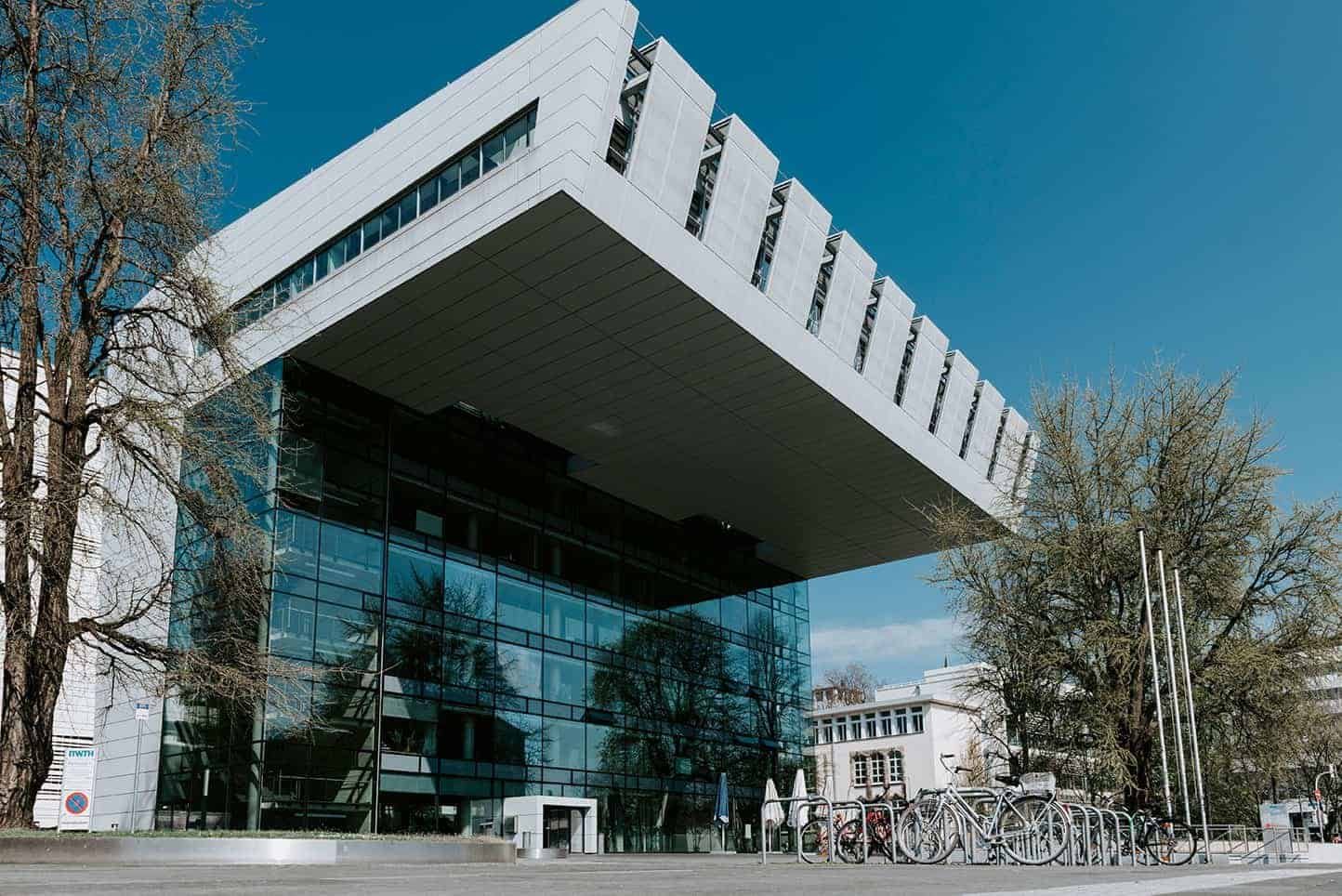
RWTH Aachen was founded in 1870 and has a strong focus on engineering. With nine faculties and 260 institutions offering a wide range of academic subjects, RWTH Aachen University is one of Europe’s premier educational and research institutions.
The RWTH Aachen Campus is developed in close collaboration with the industry and it aims to be one of the largest research parks in Europe. Not only are the research labs well-funded, students are given the opportunity to be involved in the researches being conducted there.
Situated very close to the Dutch and Belgian border, RWTH Aachen benefits from a mix of cultures and languages. Aachen is not just liveable, it’s a lovable city to live in.
RWTH Aachen University is popular for the following courses
- Computer science
- Industrial engineering
- Mechanical engineering
- Electrical engineering
- Architecture
The world’s first wind tunnel and particle accelerator were both developed at RWTH Aachen. Major innovations created onsite include a pioneering aircraft made entirely of metal and a diesel soot filter.
Source: timeshighereducation.com
There are eight key research areas at RWTH Aachen.
- Computational Science & Engineering
- Energy, Chemical & Process Engineering
- Information & Communication Technology
- Materials Science & Engineering
- Medical Science & Technology
- Molecular Science & Engineering
- Mobility & Transport Engineering
- Production Engineering
In the short video below, Professor Alexander Heufer gives us a peak into the research done at RWTH Aachen to look for an alternative fuel which is greener compared to current fuels.
TU Berlin

With about 33,500 students and 40 institutes, the Technical University of Berlin or TU Berlin is one of Germany’s largest technical universities. Other than the many campuses which are located in different parts of Berlin, TU Berlin also has a satellite campus in Egypt. With the university located in Berlin, the 7 faculties of the university offer courses that have a unique combination of natural and technical sciences with economics, social sciences and humanities.
TU Berlin is popular for the following courses
- Natural science
- Computer science
- Technical engineering
- Industrial engineering
- Architecture
Notable alumni include Fritz Haber, a German chemist who received the Nobel Prize in Chemistry in 1918 for his invention of the Haber-Bosch process.
Source: timeshighereducation.com
One of the interesting research being conducted on site is how fungi can be part of the answer to some of our current dilemmas. The research aims to find solutions to questions such as “How can we feed the world’s population without causing widespread environmental destruction? Can we reduce our reliance on petroleum and its by-product like plastic? How do we minimize animal suffering?
TU Berlin is researching on fungal technology to find more sustainable solutions. To provide an example, the production of one kilo of cotton requires 10,000 litres of water. The same quantity of textiles produced from fungi only requires 100 litres. Researchers are confident that fungal biotechnology can be implemented in many different industries. In fact, fungal biotechnology will help meet 10 out of UN´s 17 Sustainable Development Goals!
Source: idw-online.de. From the original article titled “TU Berlin: How Fungi Are Becoming the Future – white paper published”
In fact, The Institute of Biotechnology TU Berlin, together with the Art Laboratory Berlin, embarked on a project called “Mind the Fungi” to connect science and technology with art. Here’s a short video about the project.
TU Braunschweig
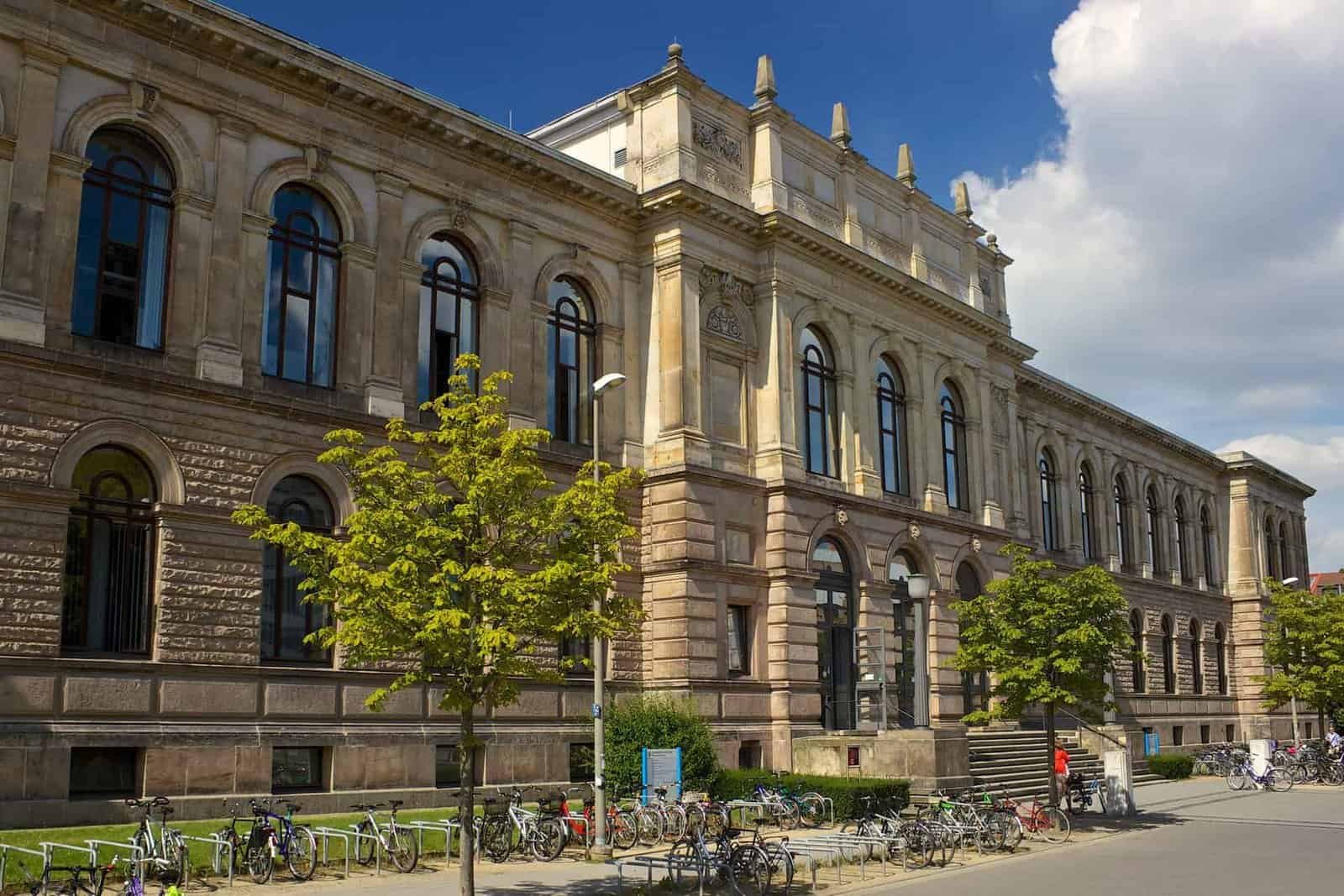
Established in 1745, TU Braunschweig is one of the oldest and largest technical institutes in Germany. TU Braunschweig focus their research on aeronautics, vehicle engineering (which includes autonomous driving and electric mobility), manufacturing, life sciences, and metrology. It even has its own research airport!
TU Braunschweig is home to the famous mathematician, Carl Friedrich as well as the Nobel prize winner, Klaus von Klitzing. Many of its students went on to be CEOs of large and renowned corporations such as SAP, Metro Group, Henkel, BMW, Porsche, Airbus Defence and Space, and Siemens Mobility.
TU Braunschweig is highly recognized for these courses
- Aerospace technology
- Civil engineering
- Electrical engineering
- Information technology
- Natural science
Together with researchers from the Technical University of Munich, they have successfully developed a completely automatic landing system for aircraft with vision assisted navigation. The system works without the need for ground-based systems. Do scroll down to watch a video of a plane which has that system installed perform an automatic landing.
The cameras already recognize the runway at a great distance from the airport. The system then guides the aircraft through the landing approach on a completely automatic basis and lands it precisely on the runway’s centreline.
– Thomas Wimmer, Pilot
Source: inceptivemind.com. From the original article titled “German tech tested automatic landing system for smaller airports”.
TU Darmstadt
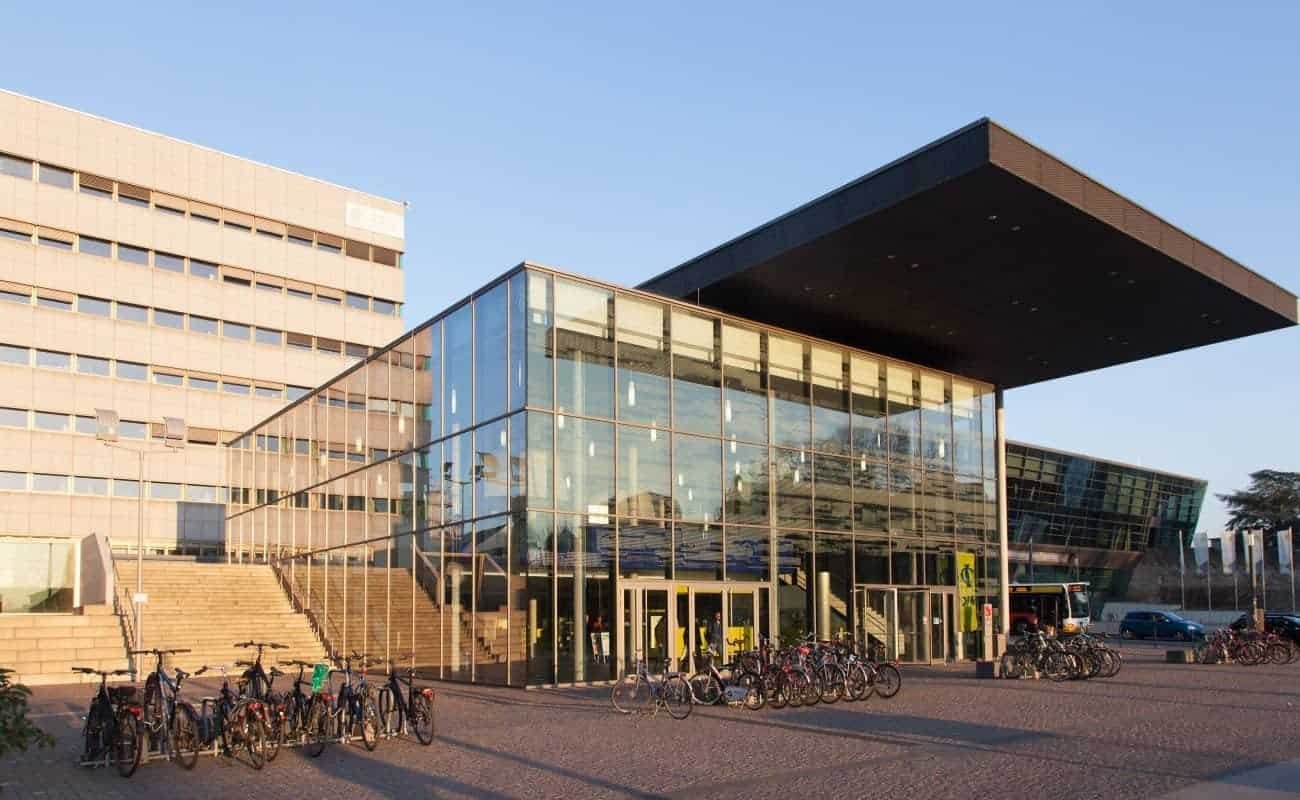
TU Darmstadt was founded in 1877. While engineering and natural science are the main focus of the university, they cooperate closely with the prominent disciplines of humanities and social sciences. TU Darmstadt partners with universities, research institutions and companies in both Germany and overseas combining ideas and expertise for the pursuit of shaping society and innovating economic and technological development. Degree courses at the TU Darmstadt are very research-centric while at the same preparing students for the requirements expected of them in the workplace.
TU Darmstadt is highly recognized for these courses
- Mechanical engineering
- Civil engineering
- Automotive engineering
- Natural sciences
- Architecture
One of the notable projects at TU Darmstadt is a fast and cost-effective test to detect neurodegenerative and cardiovascular diseases and several types of cancer compared to available methods.
LONGSENSE is a new detection method for long non-coding RNA molecules (lncRNA), which in recent years have proven to be indicative of diseases in various categories. They include, for instance, neurodegenerative diseases, cardiovascular diseases and several types of cancer.
-Professor Heinz Koeppl
Source: tu-darmstadt.de
TU Dresden

TU Dresden is a public research university located in the German city of Dresden. It is the largest university in the Saxony region. The university has 18 faculties in 5 different schools offering a broad range of discipline. The university focuses on biomedicine, bioengineering, information technology, microelectronic, energy and environment. TU Dresden is one of the institutions in Germany to be classified as a ‘University of Excellence’ in the German Universities Excellence Initiative.
TU Dresden is highly recognized for these courses
- Biology
- Systems technology
- Electronic engineering
- Information technology
- Civil engineering
Researchers at the Center for Regenerative Therapies (CRTD) at the TU Dresden are studying Zebrafish so that they can understand the regeneration potential in the inner ear of mammals and this could lead to therapeutic options for hearing impaired and deaf humans.
We were able to show that zebrafish – in contrast to mammals – display continuous neurogenesis within the inner ear.
-Dr. Stefan Hans
Source: tu-dresden.de. From the original article titled “It takes ears to understand: Insights from Zebrafish to help the hearing impaired.”
Leibniz University Hannover
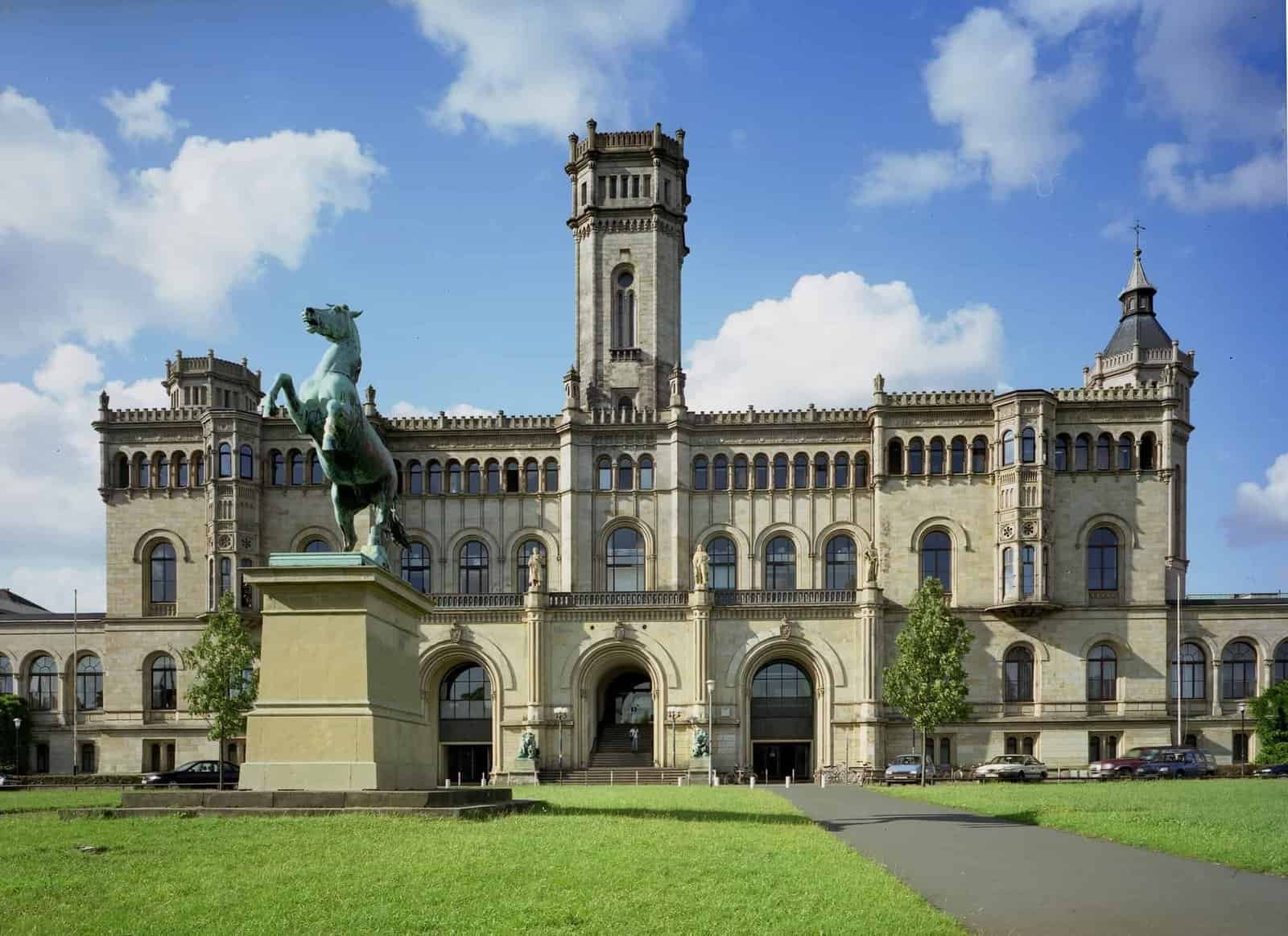
Leibniz University Hannover started out as a Higher Vocational School in 1831 with 64 students. Now, Leibniz University has about 30,000 students studying in 9 faculties. The university holds expertise in both teaching and research, particularly in the technical subjects. Its programmes range from engineering and natural sciences to architecture and environmental planning, from law and economics to social sciences and humanities. Core research topics are production technology, gravitation physics, biomedical research and engineering and teacher training.
Leibniz University Hannover is highly recognized for these courses
- Architecture
- Natural sciences
- Mathematics
- Biomedical engineering
- Process engineering
Researchers at the Leibniz University Hannover is working on a new recycling procedure which could reduce CO2 emissions by up to 80 percent during the manufacturing process of titanium components. In the current manufacturing process, in order to cut a piece of raw material into the desired shape, a huge amount of material is discarded and thus wasted. Take the aircraft industry as an example, the material removal rate can exceed 90 percent.
By developing a process chain for converting chips into powder, we intend to improve resource and energy efficiency during the manufacturing process.
Source: uni-hannover.com. From the original article titled “Titanium: Too Valuable to Waste”
Karlsruhe Institute of Technology
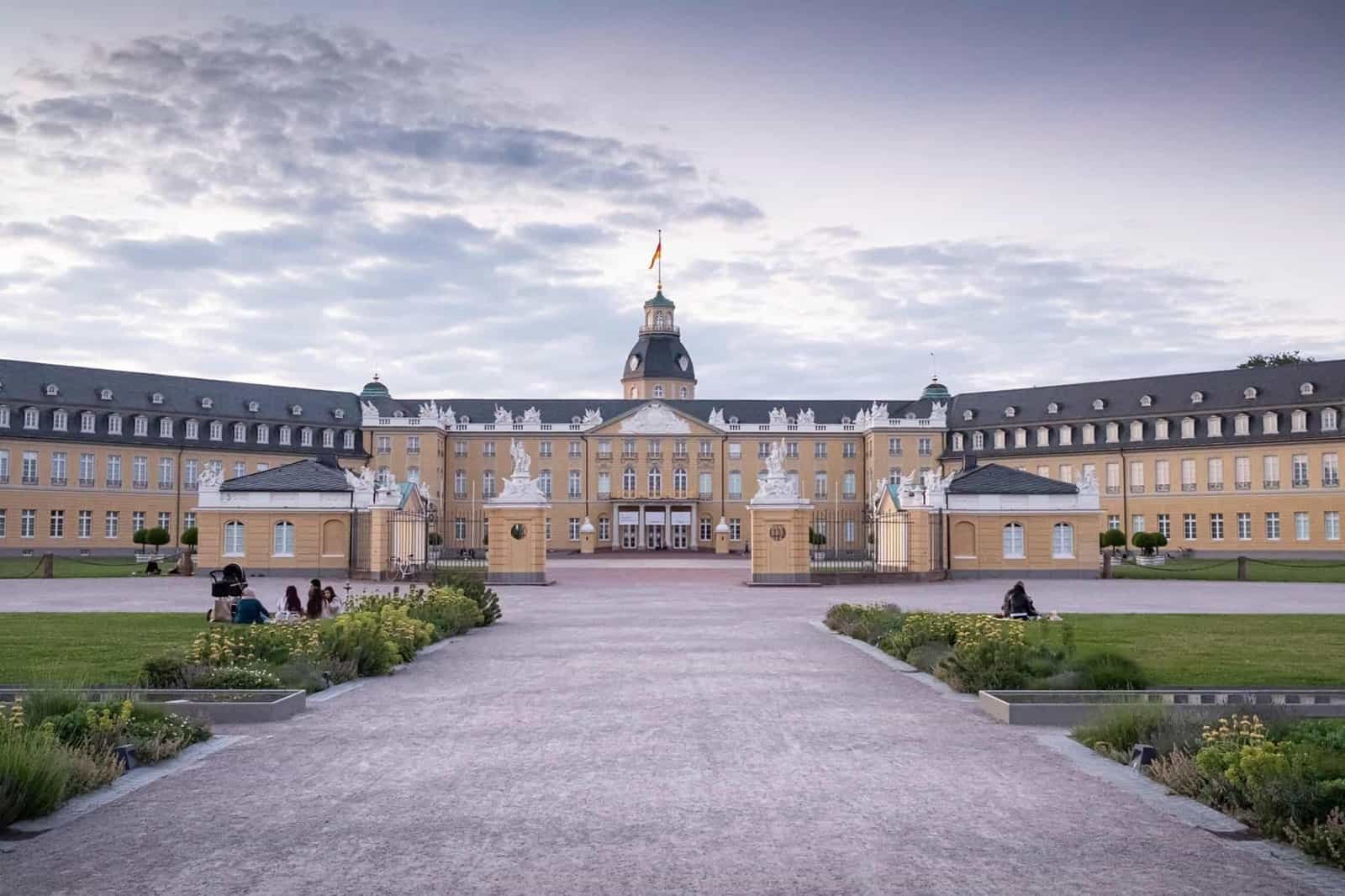
Officially established in 2009 by the merger of the University of Karlsruhe and the Karlsruhe Research Centre, located in the second-largest city in the state of Baden-Württemberg. The merger of the research and educational institutions assures consistent growth and innovation where it combines the specialities of the University of Karlsruhe on education in natural sciences, engineering, economics, social sciences, and the humanities and the scientific and engineering programme conducted by the research centre.
Kalrsruhe Institute of Technology is highly recognized for these courses
- IT
- Civil engineering
- Mechanical engineering
- Process engineering
- Electrical engineering
Former students include Karl Friedrich Benz, the automobile engineer who designed the “Benz Patent Motorcar”, widely considered the first practical car.
Source: timeshighereducation.com
TU Munchen (TU Munich)
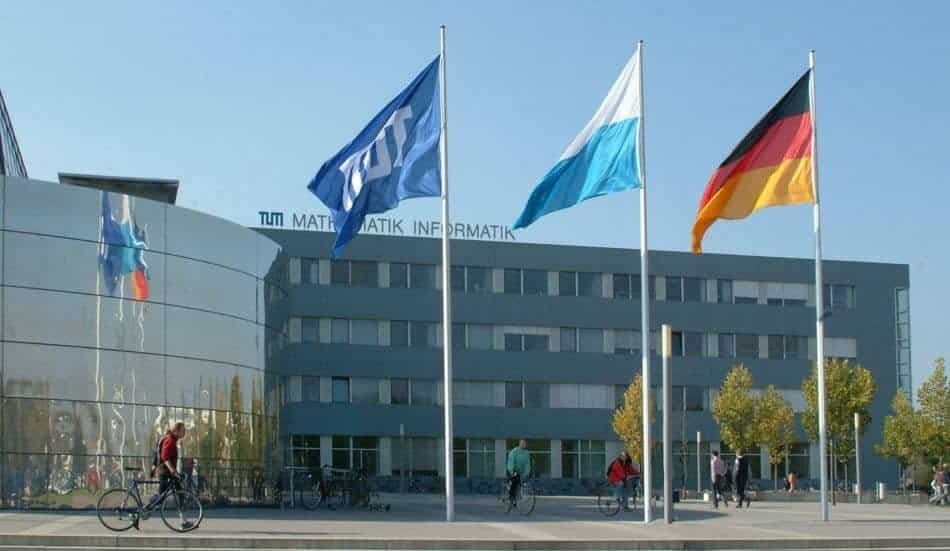
TU München was founded in 1868 specializing in natural sciences. The university has three campuses located in the state of Bavaria: Munich, Garching and Weihenstephen. The university has 14 faculties offering more than 150-degree programmes. It also has a university hospital and a campus in Singapore.
TU München is highly recognized for these courses
- Mathematics
- Chemistry
- Information technology
- Mechanical engineering
- Civil engineering
Several inventors have studied at the institution, including Carl von Linde, who invented the refrigerator, and Rudolf Diesel, who conceived the diesel engine.
Source: timeshighereducation.com
University of Stuttgart
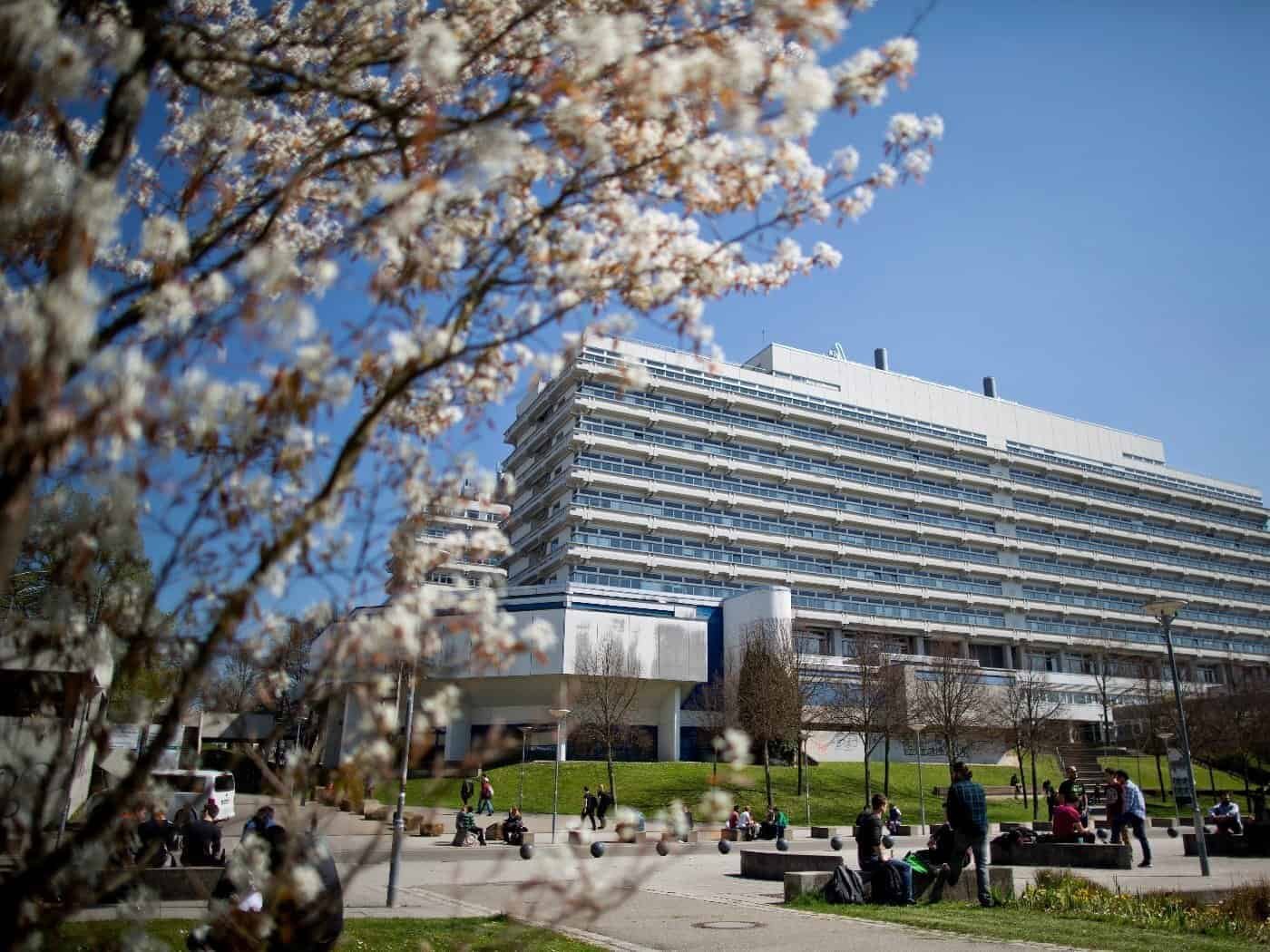
The University of Stuttgart was founded in 1829. It is one of the oldest technical universities in Germany and it is highly ranked in the fields of automotive engineering, industrial and automated manufacturing, process engineering and aerospace engineering. The university also has a school of humanities offering courses such as social science and economics. The University of Stuttgart maintains a knitted relationship with research institutions such as Frauenhofer institute and the German Aerospace Centre.
University of Stuttgart is highly recognized for these courses
- Automotive engineering
- Process engineering
- Aerospace engineering
- Architecture
- Mechanical engineering
The University of Stuttgart’s most notable alumnus is probably Gottlieb Daimler, the pioneering motor car inventor and co-founder of the company which is now Mercedes-Benz.
Source: timeshighereducation.com
How to Get Into TU9 German Universities
Getting into a TU9 university is competitive but achievable with the right academic preparation, language proficiency, and support.
These universities maintain high admission standards, especially for engineering and STEM programmes, but they also welcome international students who show academic commitment and readiness for a German-speaking academic environment.
Admission Requirements for TU9 Universities
To apply to a TU9 university, international students need to meet academic entry qualifications that are equivalent to Germany’s Abitur (university entrance qualification).
Malaysian students typically enter via one of the following pathways:
- A Level, with subjects relevant to your intended degree (e.g. Mathematics and Physics for Engineering)
- STPM, IB or Australian Matriculation, subject to specific entry requirements
- SPM/IGCSE holders will first need to complete a pre-university programme (such as the A Level German Pathway)
Each university may have slightly different requirements depending on the course and faculty, so it’s important to check each institution’s criteria carefully.
Language and Academic Qualifications Needed
Most undergraduate programmes at TU9 German universities are taught in German, so students must demonstrate German language proficiency, usually at the C1 level.
Recognised exams include:
- TestDaF
- DSH
- telc Deutsch
For master’s degrees, many TU9 universities offer English-taught programmes, especially in engineering, computer science, and international technology management. However, having basic German knowledge is still helpful for daily life and job applications.
Academic records (transcripts, certificates) must be officially translated into German or English and validated by Uni-Assist or a university’s international office.
How German Educare Can Help You Prepare?
At German Educare, we help students meet the academic and language requirements needed for admission to TU9 universities in Germany. Our structured pathways include:
- A Level German Pathway: A comprehensive route for SPM/IGCSE holders to qualify for German university admission.
- University Preparation Programme: Tailored for students with a recognised pre-u qualification.
- Application support: We assist with document preparation, recognition of Malaysian qualifications, and submission to the universities.
With the right support and early planning, getting into a top-tier TU9 university is an achievable goal—and one that opens doors to a world-class education and global career opportunities.
Frequently Asked Questions
Are TU9 universities public or private?
All TU9 universities are public universities, which means they do not charge tuition fees for most bachelor’s programmes, including those for international students. TU München is the only exception and they charge €2000 to €3000 per semester, depending on the course.
Why are TU9 universities popular among engineering students?
TU9 universities are known for their strong engineering programmes, practical training, industry partnerships, and access to research and innovation. Many are ranked among the top engineering schools in Europe.
What facilities do TU9 universities offer?
Students at TU9 institutions have access to top-tier amenities—modern laboratories, libraries, and innovation hubs—for conducting advanced research and hands-on learning.
Is German language proficiency mandatory for TU9 programmes?
For German-taught programmes, a minimum of B2/C1 German is required (e.g., TestDaF or DSH). English-taught master’s courses require proof of English proficiency (e.g., IELTS or TOEFL).
Conclusion: Is TU9 Right for You?
The TU9 universities are ideal for students who are serious about pursuing engineering, technology, or other STEM fields at the highest academic level. These institutions combine tuition-free education, world-class research, and strong ties to industry—making them a top choice for ambitious international students.
For Malaysian students, studying at a TU9 university in Germany means gaining globally recognised qualifications, hands-on experience, and excellent career prospects in Germany and beyond. If you’re academically driven, open to learning German, and ready to thrive in a challenging but rewarding environment, TU9 could be the perfect fit for you.
With expert support from German Educare, including language preparation, application guidance, and placement assistance, you’ll be fully equipped to take the first step toward a future-ready education at one of Germany’s top technical universities.
You might also like

Article title

Article title
